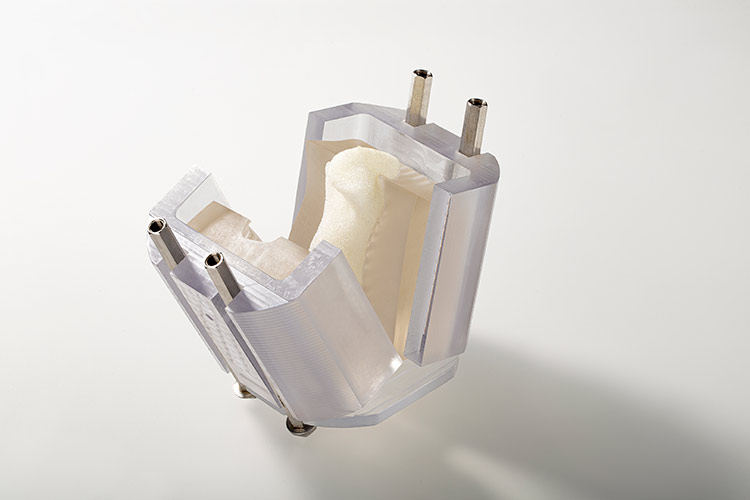Serbian-American biomedical engineer and university professor Gordana Vunjak-Novakovic won the Award’s Popular Prize, having received the most votes from the public in an online poll. Vunjak-Novakovic, who had been nominated in the “Lifetime achievement” category, opened new horizons in regenerative medicine by developing a way of growing new tissue ex vivo (outside the body) using the patient’s own cells.
Gordana Vunjak-Novakovic opened new horizons in regenerative medicine by developing a way of growing new tissue ex vivo (outside the body) using the patient’s own cells. Vunjak-Novakovic’s ground-breaking approach offers a safer, more precise and less intrusive facial reconstruction method and holds promise for replacing damaged lung and heart tissue.
Traditionally, replacing damaged or missing human tissue has involved using either a painful graft from another part of the patient’s body or donor material from a cadaver, which might be rejected by the patient’s immune system. In both cases, cells are combined with biomaterials before being inserted into the body in the hope that the transplant will find a way to regenerate tissue. This approach also makes it difficult to shape bone – the most common tissue transplant after blood transfusion – into exactly the right shape.

Dissatisfied with earlier methods, Vunjak-Novakovic and her team pioneered an alternative: growing cells in a laboratory, carefully controlling the environment to influence the type of tissue that develops, and thenimplanting this lab-grown tissue into the body. This method works by attaching stem cells to a biomaterial scaffold that serves as a template and determines the type of tissue that will form.The scaffold and stem cells are inserted into a bioreactor that mimics conditions in the human body and carefully controls variables such as temperature, pH, nutrients, oxygen and growth factors. Tissue cultured in this way is anatomically precise and, when implanted into a patient’s body, helps to suppress immune rejection.
An effective solution with unparalleled potential
Vunjak-Novakovic has applied her technology to multiple areas of tissue regeneration and commercialises her patented inventions through several companies, including EpiBone, which she co-founded in 2013. Some two million bone grafts are performed each year, and among the patients are children born with congenital deformations to the head and face. These children would normally have to undergo multiple surgeries over several years since replacement grafts are needed as the child grows. Vunjak-Novakovic’s method removes the need for repeated surgeries as the implanted bone grows with the child.
TARA Biosystems, another company co-founded by Vunjak-Novakovic, has developed a method to engineer human heart tissue. The company provides functioning heart tissue for various biomedical applications, including in vitro testing of new drugs or creating patient-specific tissue to enable personalised diagnosis and treatment. She also co-leads research into the regeneration of badly damaged lungs for transplantation by connecting them to the recipient’s circulatory system before the transplant takes place. Most recently, Vunjak-Novakovic and her colleagues have explored how their technology might repair lung tissue damaged by COVID-19.
Source: epo.org Photo: AndreasHofweber.com